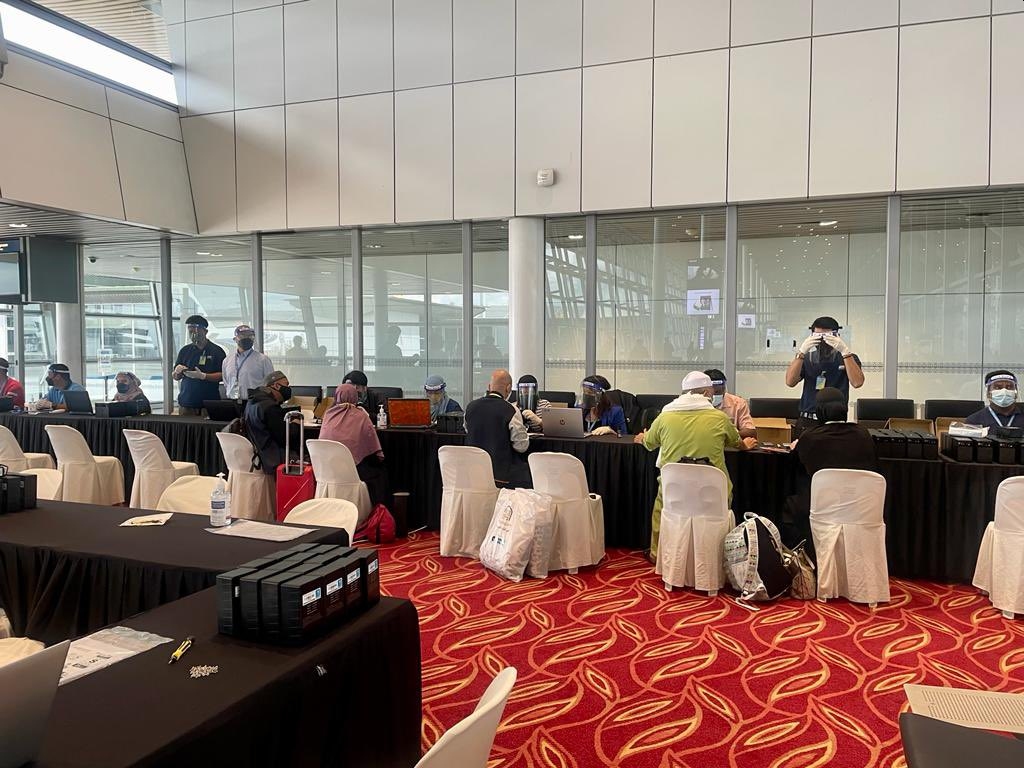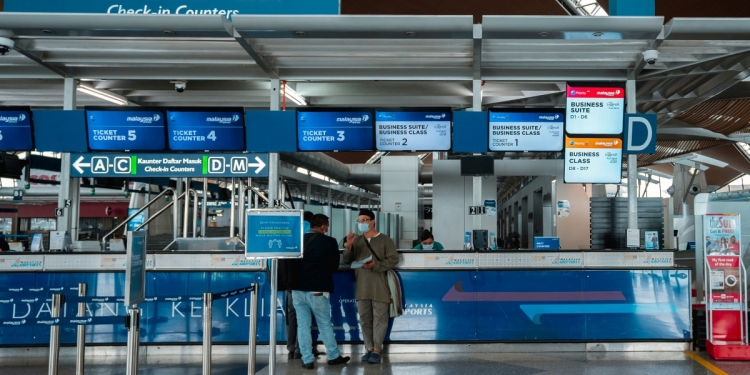Health Minister Khairy Jamaluddin has announced new travel restrictions for Umrah travel to Saudi Arabia following a surge of new imported COVID-19 cases in the country. It was revealed that travellers returning from Saudi Arabia have the highest COVID-19 positivity rate and there are 9 clusters associated with Umrah travel.
Until 30th December 2021, a total of 1,306 of 11,108 Umrah travellers were found positive, which is equivalent to a positivity rate of 11.76%. From the figure, 592 cases were detected during the first COVID-19 test upon arrival, and 714 cases were detected on the second COVID-19 test during the 5th day of quarantine.
Kumulatif kes jemaah umrah yang dikesan positif Covid-19 mengikut negeri dari 25 November sehingga 30 Disember 2021 adalah seperti lampiran. pic.twitter.com/0UvSZKoz78
— Noor Hisham Abdullah (@DGHisham) January 1, 2022
Effective immediately, the Malaysian government is suspending Umrah ticket sales from today, 1st January 2022. Umrah trips to Saudi Arabia are not permitted from 8th January 2022 until further notice. Following reports that some travellers did not adhere to home quarantine SOP, all travellers returning from their Umrah must be quarantined at a designated quarantine station or hotel from 3rd January 2022.
At the moment, individuals with existing travel plans for Umrah from 1st to 7th January 2022 are allowed to continue with their journey but they can’t opt for home quarantine. Upon return, they must be quarantined at designated quarantine centres and hotels.
According to the Ministry of Health, Malaysia has recorded a total of 2,763 imported COVID-19 cases between 1st January to 30th December 2021. Travellers returning from Saudi Arabia recorded the most positive cases at 1,446, followed by Singapore with 322 cases, Indonesia with 264 cases and the United Kingdom with 217 cases.
In the last two weeks alone, there were 1,161 positive cases among returnees from Saudi Arabia. As a comparison, there were 49 imported cases from travellers returning from the UK, 13 from Singapore, and 8 from Indonesia. Malaysia has identified a total of 9 clusters related to Umrah travel and 5 involved index cases with Omicron variant. There’s one cluster involving an index case with presumptive Omicron and three clusters involving non-Omicron variants.
According to Khairy’s statement, Umrah involves a large scale gathering which includes participants from various countries. This poses a high risk of infections including Omicron. He added that the situation has made it difficult for participants to adhere to SOP that has been set by the Malaysian government.

As announced recently, all individuals returning from Umrah and high-risk countries must wear digital trackers which are installed upon arrival. A total of twenty counters and forty personnel were assigned at the satellite building of KLIA to assist in installing the trackers upon arrival. The total time required for health screening and wearing of the devices would take about an hour and 20 minutes.
Last week, Malaysia and Singapore both suspended flight and bus ticket sales for Vaccinated Travel Lane after a local Omicron cluster was detected in Singapore. The suspension took into effect from 23rd December 2021 and sales may resume from 21st January 2022 after a risk assessment is conducted based on the COVID-19 situation.
[ SOURCE ]








